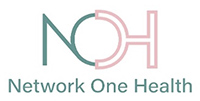

Antenatal care
Pregnancy is usually a happy and exciting time for an expectant woman. While pregnancy is a joyous time, you need to ensure that your baby is healthy throughout your pregnancy. This is where antenatal care comes in. Antenatal care refers to the healthcare and support you receive while you are pregnant.
At NetworkOne Maternity, we offer antenatal care to pregnant women not only for the journey of pregnancy but also for the birth of the baby. During your first antenatal appointment, we will confirm your pregnancy and discuss your general health history and gynaecological health history.
We recommend that you come in for your first appointment between 7 – 10 weeks of pregnancy. During the first appointment, we will perform a dating scan, discuss birthing options and answer any questions that you may have. After this, you will need to come for another appointment approximately 4-6 weekly until you’re 28 weeks pregnant. At 28-36 weeks, you need to come in every two weeks. After 36 weeks of pregnancy, you need to come in for weekly check-ups until the baby is born.
Pre-pregnancy counselling
Before you attempt to conceive, we will discuss any specific health requirements, for example, up to date pap smears and taking folic acid supplements. We can also advise on the best time for intercourse in order to conceive.
We perform the following screenings:
- Pregnancy diagnosis: A physical examination, ultrasound and laboratory evaluation is used to confirm the pregnancy.
- First-trimester screen: An ultrasound that takes place between 8 and 12 weeks of your pregnancy to check on your baby's health and development and your pregnancy health.
- Second-trimester screening: This screening is done between 15 and 20 weeks of pregnancy and may include blood tests to provide information about the risk of the baby being born with certain birth defects or genetic conditions.
- Maternal risk profile assessment: An ultrasound combined with a blood test is used to determine the chance of an unborn child having Edward Syndrome, Down Syndrome, or a neural tube defect.
During your antenatal visits, we will also prioritise any physical symptoms that may be plaguing you during your pregnancy, such as fatigue, morning sickness, weight gain and anxiety. In addition, we can offer advice on healthy eating and lifestyle changes.
